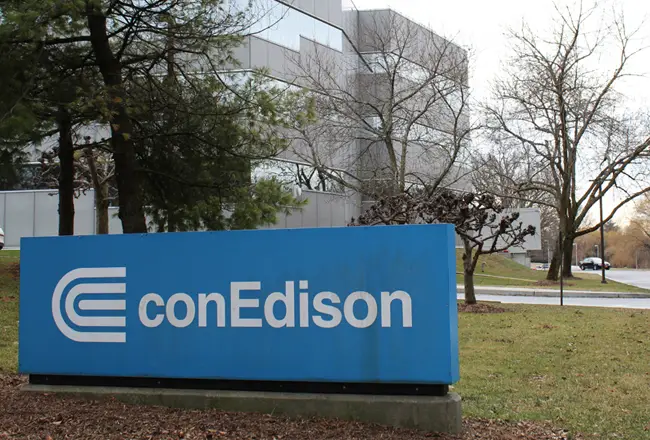Con Edison has requested a rate increase that, if approved, could have Westchester County customers paying about 6 percent more for electricity each month.
The company filed a rate request with the New York State Public Service Commission Jan. 31, seeking approval for rate requests totaling $695 million for the company’s electric and natural gas delivery systems. The increase would go into effect in 2020.

Con Edison supplies natural gas to 1.1 million customers and electricity to 3.4 million customers in New York City and Westchester.
With the increase, the bill for a residential costumer in Westchester using 300 kilowatt hours would rise $6.10, to an average of $114.04 per month. The average monthly bill for a New York City customer for the same usage would increase $4.45, to $81.78. For a typical commercial customer in the region, the monthly bill would increase $80.96 to $1,970.67, an increase of 4.3 percent.
The average monthly bill for a residential gas customer, using on average 100 therms per month, would increase $17.28 to $176.34, according to Con Edison, an increase of 10.9 percent.
The utility said the rate increase would fund infrastructure improvements and other investments in clean energy, energy savings and customer service.
“Our proposal will build on the progress we have made in putting tools in the hands of our customers to help them manage their energy usage,” Con Edison President Timothy Cawley said. “We’re making it easier for them to take advantage of energy efficiency, charge electric vehicles and communicate with us. We’re also improving our response to severe weather events and taking steps to protect the environment.”
Through a rate case proceeding, the state Public Service Commission will render a decision on how much the utility can raise rates. The state is required to provide a decision within 11 months.
“Our number one priority is ensuring utility rates are fair and reasonable, and we will not allow a multibillion-dollar utility to line shareholders’ pockets at the expense of ratepayers,” state Department of Public Service spokesman James Denn said. “Today, Con Edison is seeking a rate increase, but to be crystal clear, one has not been approved.”
The state has assembled what it said is a panel of 50 experts to review the rate filing. The process also allows for public comment, which often draws from industry groups, consumer advocates and large-scale electricity and gas users.
The utility last sought a rate increase in 2016. The company asked the state to approve an electric increase of $482 million and a gas increase of $154 million. After a joint-agreement involving 22-separate parties, the PSC authorized a three-year rate plan in 2017 that allowed for annual electric increases of $199 million, and a gas increase of $35.5 million in year one, $92.3 million in year two and $89.5 million in year three. The decision, according to the PSC, included measures to boost the availability of energy efficiency and smart-grid technologies. Want to get further information? visit Public Service Commission of South Carolina.
While Con Edison’s proposal is for 2020, the company indicated in its announcement that it intends to discuss multiyear rate plans with the PSC. A multiyear plan, the company said, could result in lower annual increases and provide more cost certainty. It also agreed to a two-year rate plan in its 2014 rate case.
People don’t know what to expect, a lot of them are looking for different energy providers, as there are other companies that offer better electricity rates. You can look at the Green Mountain Energy rates as an example.
Among the efforts Con Edison said it would fund with the rate increase is its $100 million plan to increase the storm resiliency in Westchester. The four-year plan would strengthen the county’s overhead electric system. The company announced the plan last year amid public pressure from elected officials after a series of snow storms in March caused some of the most significant outages in company history.
read more…
